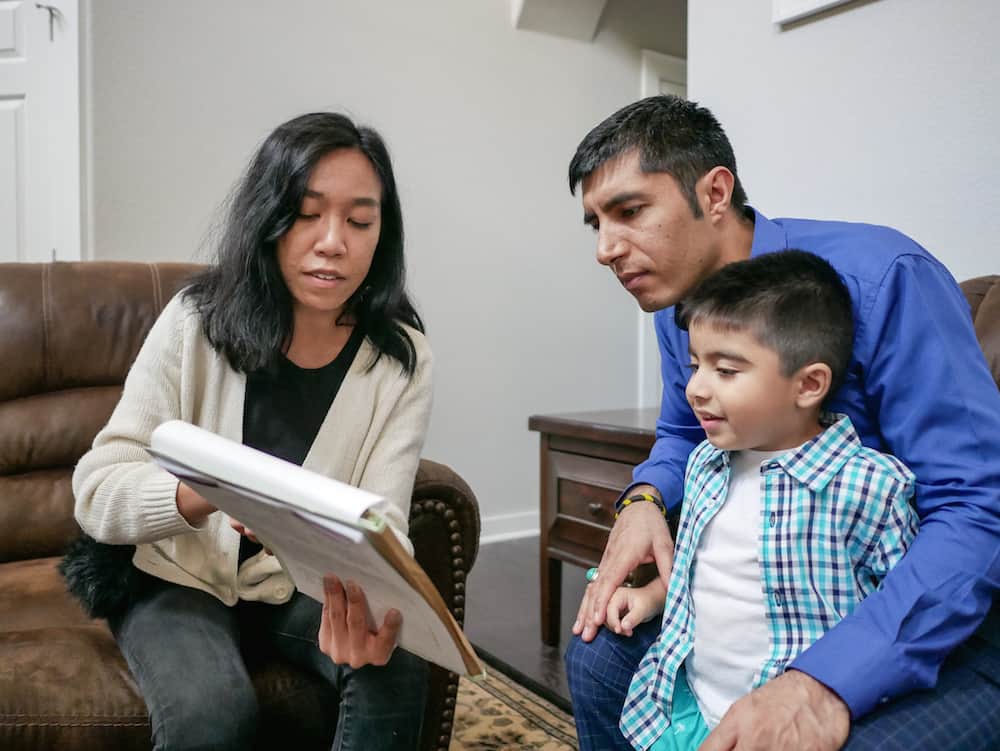For social work senior Gwen Leonares, learning Arabic was a key part of becoming culturally competent to work with refugees from Iraq, Afghanistan, Somalia, and Syria.
Walking around Austin this past year, Gwen Leonares noticed many people wearing t-shirts and tattoos with an Arabic word and, underneath of it, the English word “infidel.” Leonares, a thoughtful social work senior, was puzzled by the choice of words.
“It’s problematic when words are taken out of their cultural context. People wearing those t-shirts and tattoos may want to claim the word ‘infidel’ to make a statement that they are not Muslim, but the Arabic word they are using actually means someone who covers up the truth of God,” she explains.
Leonares is able to make these subtle language distinctions because of the Arabic Flagship Program, a merit-based undergraduate course of study at UT Austin. As a scholar in this program, Leonares has completed a three-year Arabic language curriculum, taken content courses fully taught in Arabic, and is getting ready go to Morocco in June for a capstone year abroad.
“I don’t have any Arabic background in my family,” she says with a smile, as someone used to be asked this question. Her decision to learn Arabic came instead from a desire to serve refugee populations, which also drove her to the the social work major.
“When I was in high school I volunteered through my church to work with refugees, who were mostly Bhutanese and Burmese children. I majored in social work at UT Austin because I wanted to continue my work with refugees. And I applied to the Arabic Flagship Program because I realized that by the time I graduated there would be many Arabic-speaking refugees. I believe that language is a key part of cultural competency,” she says.
Leonares is doing her required social work internship at Refugee Services of Texas, where she has plenty of opportunities to practice her Arabic with clients from Iraq, Afghanistan, Somalia, and Syria. She appreciates that the flagship program encourages students to study Modern Standard Arabic – a variety of Arabic used in writing and formal speech throughout the Middle East – as well as Egyptian and Levantine dialects.

“Egypt is like the Hollywood of the Middle East, so everybody understands the Egyptian dialect because of movies. And we also learn Levantine dialects spoken in places like Jordan, Palestine, Syria, and Lebanon,” she explains.
Being able to speak these dialects has made a great difference in the way she interacts with refugees at her field placement.
“If you use the formal, Modern Standard Arabic with a client, they would be able to understand you. But if you use their dialect, it opens a wider avenue of communication. It’s uncommon for people to speak in that formal language, and in addition they are in an unfamiliar setting, coming from hard circumstances. It is really important to give them the chance to speak the way they would speak to a friend,” Leonares says.
After her capstone year abroad in Morocco, where she will be taking college classes as well as doing an internship in a community organization, Leonares is planning to pursue a master of global policy affairs.
“I love case management but I think I eventually want to work with refugees from a macro perspective. Our country’s refugee resettlement policies have been put together rather quickly, in response to crises, without much resources or planning. I think we can do much better,” she says. “And as a social work major, I believe it is very important to have more policy makers with case management experience, who understand the plight of refugees because they worked and talked with them.”
By Andrea Campetella. Posted April 26, 2017.

